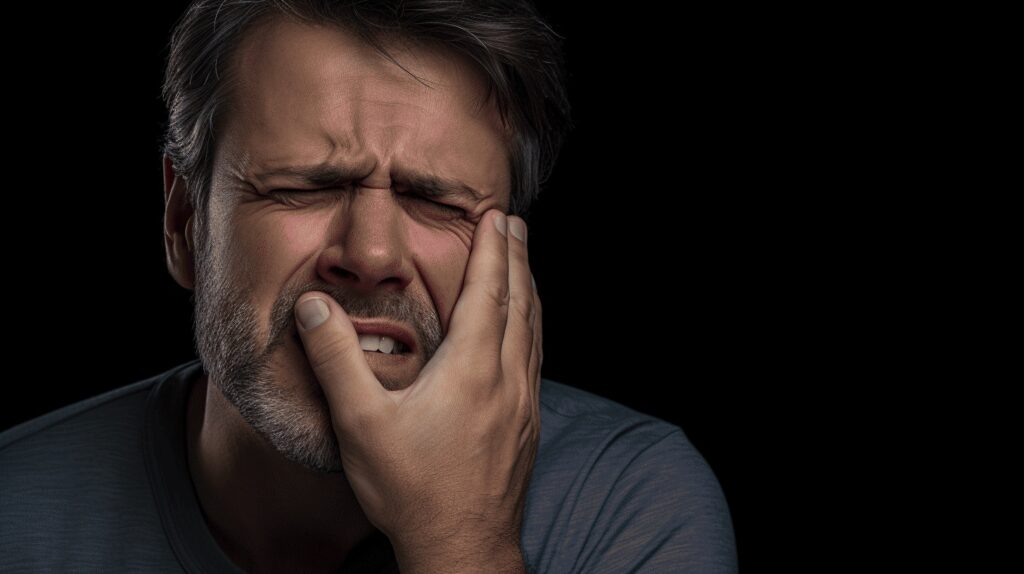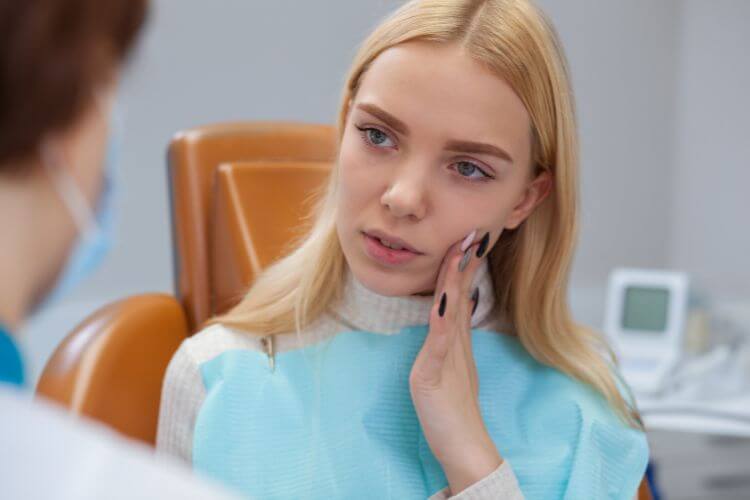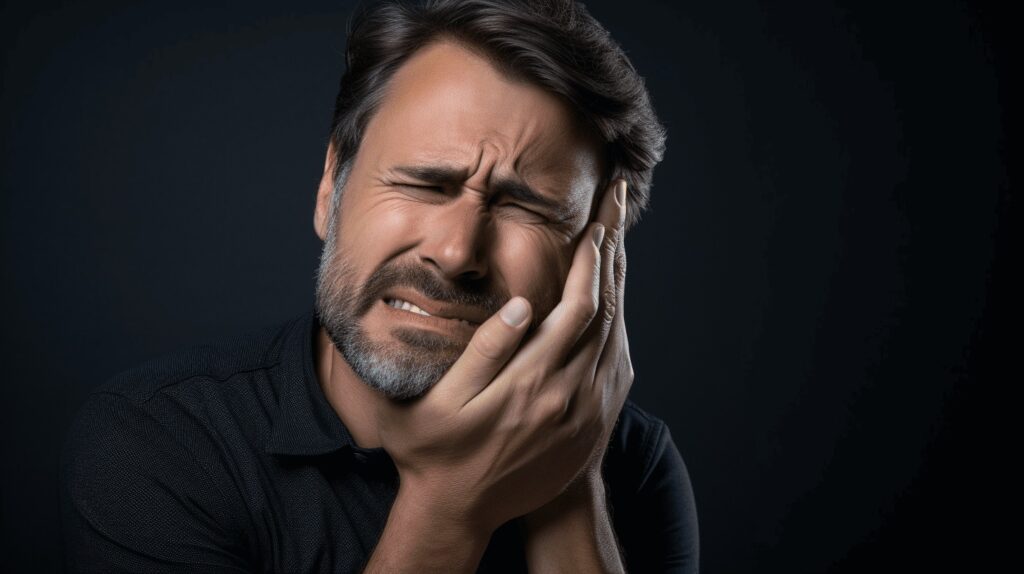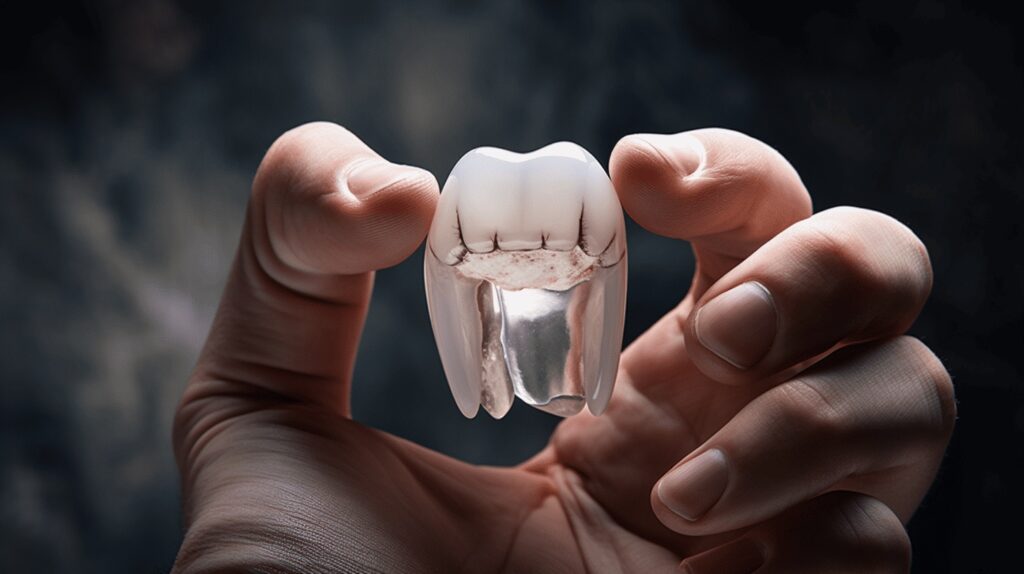Oh, no! 😱 Out of the blue, that stubborn toothache has skyrocketed, and now it’s unbearable.
Suddenly, you feel a sharp sting, and before you know it, your weekend plans are down the drain.
You realize that emergency dental care is the only way out. But what are your options?
What can be done during these tough times, particularly when you need immediate help?
We are about to embark on a journey to answer these pressing questions. Join us as we delve deeper into the world of dental emergencies, exploring their frequency, their impact on school, work, and adults with low income.
Let’s fetch some insights into the fundamental role of hospital ERs, the role of urgent dental care facilities, and the wisdom behind regular dental checkups.
Trust us, this comprehensive guide about dental emergencies will not only be a fascinating journey but could also come in handy during those unexpected tooth troubles.
So let’s get started, because when it comes to dental health, knowledge is as soothing as a minty fresh breath! 🦷
Table of Contents
Understanding Dental Emergencies
Understanding dental emergencies can be a daunting task, especially when you find yourself in the midst of one.
They can happen without warning, catching you off guard.
Knowledge is power in such situations, and that’s why we’re here to give you some insight into dental emergencies – how common they are, their impact on everyday life, and their prevalence in adults, particularly those with low income.
How common are dental emergencies?
You’d be surprised that dental emergencies are as common as they come.
In fact, there were more than 2 million dental-related emergency department visits in 2018 in the U.S alone!😲
That’s double the entire population of some countries! So, you see, you’re not alone if you’ve ever had a dental scare that had you rushing to the dentist.
And remember, never hesitate to seek immediate treatment if you feel you’re dealing with a dental emergency.
The Impact on School and Work
Dental emergencies can disrupt everyday life in more ways than just pain and discomfort.
Have you ever thought about young schoolers, for instance? About 34 million school hours are lost each year due to emergency dental care – that’s an astronomical number of lost learning opportunities.😕
The scenario isn’t any better in a work environment either.
Believe it or not, over $45 billion in productivity is lost each year in the U.S due to emergency dental care – a depressing example of how a small cavity can wreak havoc on society’s functionality.
Dental emergencies in adults with low income
As frightening as dental emergencies are, they turn into nightmares for those who don’t have the financial means to manage them.
This is sadly the case for many low-income adults. 40% of adults with low-income or no private health insurance have untreated cavities – a painful reminder that healthcare and socio-economic status are inseparably linked.
In all, understanding dental emergencies is not just about knowing the signs and the treatment options – it’s also about realizing their impact and the role we all play in reducing their frequency and severity.
So, maintain your oral hygiene, follow your routine dental check-ups, brush and floss daily, and you just might escape the clutches of inconvenient, expensive, and painful dental emergencies.
Remember, your smile is your asset – protect it! 😉
The Economic Impact of Dental Emergencies
When it comes to addressing health issues, dental emergencies often do not receive the attention they deserve.
What many don’t realize is that these can lead to significant financial burden, both on affected individuals and the economy as a whole. 🌍
Let’s delve into the hard facts:
Dental emergencies result in over 2 million annual visits to emergency rooms, draining a staggering $1.6 billion from our healthcare system. As of now, that’s an economic impact hard to ignore! But here’s a hidden cost that many have not considered – Atraumatic dental pain. This pain is all too real and cumulatively costs us a whopping $2.4 billion annually. 😲
Money doesn’t grow on trees, right?
For us to better manage our resources, we need to nip the problem in the bud. Encouraging regular preventive dental check-ups could effectively decrease the overall cost associated with dental emergencies.
Timely and appropriate dental care can treat minor issues before they explode into major, cost-consuming problems.
💡As we converge our efforts toward a more cost-efficient health system, let’s not forget to shed light on these often-overlooked dental emergencies.
By making an individual effort and spreading awareness, we can collectively diminish the financial burden associated with such emergencies.
After all, every penny saved is a penny earned. Remember, your smile is priceless. So, keep it healthy! 😊
Frequency of Dental Checkups among Adults and Impact of COVID-19
Often, when life gets busy, routine dental checkups can swiftly slide down the priority list.
And let’s be honest, we’ve all had those mornings where we’ve considered skipping the recommended two-minute scrub.
However, oral health is integral to our overall wellbeing, and neglecting dental checkups can lead to bigger problems down the line.
Surprisingly, a whopping 42% of adults admit they don’t visit the dentist regularly. That’s nearly half the adult population missing out on essential oral healthcare!
Regular dental checkups do more than merely keeping your smile attractive; they ward off potential dental problems like gum disease, oral cancer, cavities, and tooth loss.
More importantly, they can detect indicators of systemic diseases like diabetes and kidney problems, which might otherwise go unnoticed.
However, the recent COVID-19 pandemic dramatically altered the landscape of dental care. The unexpected closure of dental practices for regular check-ups and non-emergency procedures, coupled with people’s reluctance to visit dental offices due to fear of infection, significantly impacted dental care. Sadly, this disruption meant even more adults missed out on their usual dental check-ups.
Now, this doesn’t mean that urban dwellers are the only ones affected. Quite the contrary, in fact.
Despite residing outside of metropolitan statistical areas, 57.6% of adults aged 18-64 visited the dentist in the past year. While borderline impressive, given the significant barriers to access often seen in rural areas, it’s still far from the ideal 100%.
While we’ve all faced unprecedented challenges during the COVID-19 pandemic, it’s essential to remember not to let our oral health fall by the wayside.
Remember, as with all things related to our health, prevention is always better than cure! So, go pick up that toothbrush, floss that grin and, as soon as it’s safe to do so, book that overdue dental appointment ✨.
We all collectively have a responsibility to take care of our teeth and gums as part of our journey towards greater health and wellbeing.
Therefore, it’s about time we take regular dental check-ups seriously, for the sake of our smiles, our health, and our pockets alike 😁.
Remember, a healthy mouth is a gateway to a healthy body!
Common Dental Emergencies and Their Management
To start with, when was the last time you woke up with a sudden toothache that perplexed you, and you didn’t know what to do? We’ve all been there, and it’s not a spot we’d like to find ourselves in.
However, understanding the severity of dental problems, whether they’re emergent or not, is essential to managing them effectively and promptly.
Severity of Dental Problems
- Not all dental issues are emergencies, as shocking as that might sound. For instance, while a chipped tooth might inspire panic, unless it’s causing extreme pain or bleeding, it can typically wait until office hours. Similarly, a minor toothache could be managed with over-the-counter medication if it’s outside of the dentist’s working hours.
- On the other hand, severe infections, uncontrollable bleeding, or notably sharp pain are all indicators of a dental emergency. It’s crucial to contact your dentist immediately if you experience any of these symptoms.
- Even though dental problems can be stressful, being able to differentiate between a minor tooth issue and a dental crisis is invaluable. By doing so, you ensure that you’re addressing urgent matters swiftly and not crowding your dentist’s schedule with concerns that could wait a day or two.
Recommendations from the American Dental Association
The American Dental Association (ADA) strongly recommends staying in touch with your dentist and immediately consulting with them during a dental emergency.
After all, no matter how knowledgeable we are, we’re not dental experts ourselves!
- The ADA suggests that if you experience severe pain, continued bleeding, or the loss of a tooth, it’s time to give your Emergency Dentist in LA a call.
- Additionally, any signs of infection, such as swelling or knots on the gums, should be taken seriously, as these can potentially be life-threatening if not treated appropriately.
- Following these suggestions not only helps us maintain our dental health but also vital to ensure our overall well-being.
Role of Hospital ERs in Dental Emergencies
While we’d all prefer to see our trusted dentists during a dental crisis, unfortunately, that’s not always possible at odd hours.
In such cases, hospital emergency rooms are an available alternative to offer emergency dental care.
- Remember that while ER physicians aren’t trained for root canals or tooth extractions, they can give you medications to manage pain and keep infections under control.
- Furthermore, for problems like a knocked-out tooth, heading to the ER might actually be a good idea, due to the time-sensitive nature of the reattachment process.
- Therefore, knowing when to rush to a dental ER can prove critical in extreme cases.
Let’s face it, tooth problems are rarely fun, but by understanding the nature and severity of dental emergencies, knowing when to contact our dentists, and realizing the role ERs can play, we’ll equip ourselves to handle emergencies better.
Remember, dental health is a vital component of our overall health, and taking prompt action can make all the difference between saving a tooth and losing one.
Preventing Dental Emergencies
We’ve all heard the saying, “Prevention is better than cure,” but when it comes to our oral health, these words ring particularly true.
A healthy mouth is not only crucial for enjoying delightful meals but also a necessary facet of our overall health.
Regular dental checkups and good oral hygiene can play a significant role in preventing dental emergencies.
Importance of Regular Dental Checkups
Now, you might be wondering, ‘Why regular dental checkups are so important?’
Well, there are numerous reasons why we should never skip our dentist appointments.
- Early Detection: Routine checkups allow for early spotting of potential issues, thereby allowing for a more effective and minimally invasive treatment.
- Preventive Measures: Your dentist can provide you with preventive treatments that minimize the risk of serious issues down the line.
- Professional Cleanliness: Even with regular brushing and flossing, there are areas of your mouth you can’t reach. Dental cleanups can ensure your oral cavity stays thoroughly clean.
- Long-term Health: Regular dental visits contribute majorly to long-term oral health, preventing dental emergencies that could lead to painful experiences.
A simple way to remember is that our aim should always be ‘preventative, not reactive.’ Preventative Dentistry for Busy Professionals – it’s not just about fitting in a couple of appointments into your busy schedules; it’s an investment for your future health.
Preventing Dental Emergencies through Good Oral Hygiene
The surest way to prevent dental emergencies is to maintain a consistent oral hygiene routine. Keeping your teeth and gums healthy doesn’t have to be complicated.
Let’s highlight some easy-to-follow strategies:
- Brushing Twice a Day: It helps remove the layer of bacteria which causes tooth decay and gum diseases.
- Flossing Regularly: Flossing ensures that no food debris is stuck in obscure corners, causing cavities.
- Balanced diet: It’s essential to consume a balanced diet for good oral health. Sugary foods can contribute to tooth decay, while certain nutrients can enhance your oral health.
- Tobacco Avoidance: Not only does this reduce your risk for oral cancer, but it also stops the build-up of hardened plaques that can lead to severe dental issues.
In the quest for perfect oral health and in avoiding dental emergencies, preventative efforts cannot be underestimated.
As we’ve seen, both regular dental checkups and consistent oral hygiene practices are critical. Not only can they save you from painful dental emergencies, but they can also ensure that your beautiful smile lasts a lifetime.
Availability of Urgent Dental Care
Experiencing a dental emergency in the middle of the night can be daunting, not to mention painful! But don’t worry, my friends!
There’s a silver lining, regardless of the dental calamities that have struck. Urgent dental care appointments are available for all kinds of situations👍
Whether you’re dealing with severe dental pain, wisdom teeth infections, or facial swelling due to dental issues, immediate help is at your disposal.
In this section, we delve deeper into how you can handle such unexpected oral incidents and ease your discomfort.
Handling Severe Dental Pain
Oh, the terror of a sudden toothache!
Anyone who’s been there knows it’s like being stabbed with a lightning bolt. But fret not! 😌
Urgent care plays a critical role in these agonizing moments. Rather than groaning in pain and anxiously wondering if a tooth fairy can swoop in to your rescue, focus on Finding Immediate Treatment Options.
These could include seeking immediate professional help or temporary measures to alleviate the discomfort until you reach your dentist.
Dealing with Wisdom Tooth Infections
When wisdom teeth make their grand entry, they don’t always find enough space in your mouth.
They may eventually become impacted, leading to infections that can be challenging to manage. Pain, discomfort, swelling, oh my! Doesn’t sound fun at all, does it?
Thankfully, urgent dental care specifically handles such crises and can come to your aid swiftly when dealing with wisdom tooth infections. Keep calm and remember – a prompt dental visit can save you lots of pain and trouble.
Managing Facial Swelling Due to Dental Infections
Facial swelling owing to dental infections isn’t just aesthetically bothersome.
It can hinder your daily activities and make you feel extremely uncomfortable. Urgent dental care isn’t just an option; it’s a necessity in such circumstances.
Remember, as we always say, the quicker you seek dental help, the faster you can return to your pain-free, happy self! 😁
So, remember to hold onto your chompers! Don’t let the fear of dental emergencies get the better of you.
We’re here to help! From elaborate dental procedures to a reassuring chat, urgent dental care has got you covered, ensuring your smile remains as bright as ever. Sparkle on! 🌟
Conclusion
Taking dental emergencies lightly can lead to serious complications.
Remember, time is of the essence in these situations, and immediate professional assistance is paramount.
Luckily, Wilshire Smile Studio has you covered and provides comprehensive emergency dental care to help you mitigate the harsh consequences of a dental crisis. 😃
From dental pain management to confronting facial swelling due to infections, we offer prompt, patient-focused responses. Our studio’s ethos is clarity, compassion, and above all, commitment to preserving and enhancing your beaming smiles!
So next time a dental situation strikes, remember we’re just a call away.
Here’s to prioritizing dental health, fostering brilliant smiles, and reducing dental emergencies with preventive care and awareness! Because at the end of the day, nothing beats the confidence of a healthy, radiant smile.
Stay resilient, stay smiling!
For a more detailed look at our services, schedule your appointment or call us at (323) DENTIST (323-336-8478)
Your perfect smile awaits at Wilshire Smile Studio. We look forward to fostering your oral health journey.
Frequently Asked Questions
1. What qualifies as a dental emergency?
Dental emergencies can include severe toothaches, knocked-out or loose teeth, broken or chipped teeth, broken dental fillings, infections, or any trauma to the mouth or jaw.
2. What should I do if I have a dental emergency?
If you have a dental emergency, it is important to stay calm and contact your dentist immediately. They will provide guidance over the phone and schedule an emergency appointment to treat your condition as soon as possible.
3. How can I relieve tooth pain at home before seeing a dentist?
To temporarily relieve tooth pain, you can rinse your mouth with warm saltwater, use over-the-counter pain relievers, apply a cold compress to the affected area, or use clove oil on a cotton ball and place it near the tooth.
4. What should I do if a tooth gets knocked out?
If a tooth gets knocked out, rinse it gently with water, avoiding any scrubbing or touching the root. Try to place the tooth back into its socket if possible. If not, put it in a glass of milk and seek immediate dental attention.
5. Are dental emergencies covered by insurance?
Dental insurance coverage for emergencies varies, so it is important to review your insurance policy or contact your insurance provider to understand what is covered. Many dental insurance plans provide coverage for emergency treatments.









